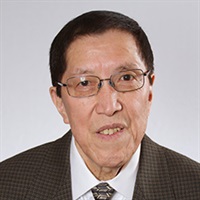EP21 Speech 10 - Microintervention Strategies: Disarming Microaggressions - Derald Wing Sue, PhD
- Average Rating:
- Not yet rated
- Topic Areas:
- Psychotherapy | Speeches | Therapist Development
- Categories:
- Evolution of Psychotherapy | Evolution of Psychotherapy 2021
- Faculty:
- Derald Wing Sue, PhD
- Duration:
- 1 hour
- Format:
- Audio Only
- Original Program Date:
- Dec 03, 2021
- License:
- Never Expires.
Description
In the United States, the omnipresence of racial bias and bigotry has led many to question the reasons for their persistence in light of widespread public condemnation. Social scientists have proposed a number of reasons for people’s failure to act: (a) the invisibility of modern forms of bias, (b) trivializing an incident as innocuous, (c) diffusion of responsibility, (d) fear of repercussions or retaliation, and (e) the paralysis of not knowing what to do. This presentation is aimed at addressing the last reason by providing participants with a repertoire of anti-bias strategies and tactics to overcome the expressions of microaggressions.
This speech has several overarching goals: (a) elucidate the harmful impact of race-related bias on persons of color (b) acknowledge the central value of self-care in coping used by persons of color, (c) highlight the importance of disarming and neutralizing harmful microaggressions, and (d) suggest intervention strategies that can be used by targets, White allies and bystanders.
Microinterventions are the everyday words or deeds, whether intentional or unintentional, that communicates to targets of microaggressions (a) validation of their experiential reality, (b) value as a person, (c) affirmation of their racial or group identity, (d) support and encouragement, and (e) reassurance that they are not alone. More importantly, they serve to enhance psychological well-being, and provide targets, allies and bystanders with a sense of control and self-efficacy. For anti-racists, they provide a repertoire of responses that can be used to directly disarm or counteract the effects of microaggressions by challenging perpetrators. They are interpersonal tools that are intended to counteract, change or stop microaggressions by subtly or overtly confronting and educating the perpetrator.
This speech has two major objectives. First, it provides participants with the opportunity to learn, practice and rehearse microintervention strategies and tactics to disarm and neutralize expressions of bias by perpetrators while maintaining a respectful relationship. Second, to understand the admonition, “Do Something” to overcome silence and inaction rather than to perpetuate false consensus. Four strategies along with their specific tactics or best practices will be discussed in the workshop: (a) Make the “invisible” visible, (b) Educate the perpetrator or stakeholder, (c) Disarm the microaggression, and (d) Seek outside support or alliances.
Learning Objectives
- Be able to define “microinterventions.”
- Analyze the barriers to taking action in the face of microaggressions.
- Provide three examples of microintervention strategies and tactics.
- Discuss the benefits of microinterventions for targets, allies and bystanders.
Credits
Faculty

Derald Wing Sue, PhD Related Seminars and Products
Derald Wing Sue, Ph.D in Counselling Psychology, is Professor of Psychology and Education in the Department of Counseling and Clinical Psychology at Teachers College and the School of Social Work, Columbia University. He was the co-founder of the National Multicultural Conference and Summit, co-founder and first President of the Asian American Psychological Association, past presidents of the Society for the Psychological Study of Culture, Ethnicity and Race, and the Society of Counseling Psychology. Derald has served as Editor of the Journal for Counseling and Development, Associate Editor of the American Psychologist, Editorial Board Member to The Counseling Psychologist, Asian American Journal of Psychology, Asian Journal of Counselling, and serves on the Council of Elders for Cultural Diversity and Ethnic Minority Psychology.
Derald is a pioneer in the field of multicultural psychology, microaggression theory, racial dialogues, multicultural counseling and therapy, and the psychology of racism/antiracism. He is author of four best-selling texts: (1) COUNSELING THE CULTURALLY DIVERSE: THEORY AND PRACTICE, (2) OVERCOMING OUR RACISM: THE JOURNEY TO LIBERATION, (3) MICROAGGRESSIONS IN EVERYDAY LIFE: RACE, GENDER AND SEXUAL ORIENTATION, and (4) RACE TALK AND THE CONSPIRACY OF SILENCE: UNDERSTANDING AND FACILITATING DIFFICULT DIALOGUES ON RACE. As evidence of Dr. Sue's stature in the field, two studies of multicultural publications and scholars concluded, Impressively, Derald Wing Sue is without doubt the most influential multicultural scholar in the United States today.


